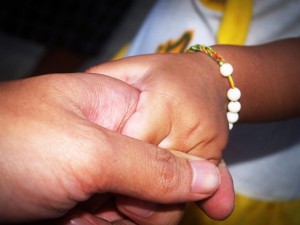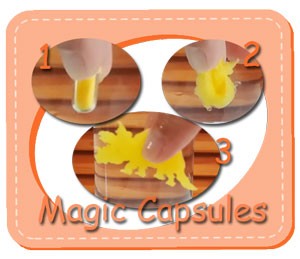
According to Laurence Steinberg, PhD, writer of The Ten Basic Principles of Good Parenting, good parenting helps in fostering empathy, honesty, self-reliance, self-control, kindness, cooperation and cheerfulness in children.
Good parenting also helps children to develop intellectual curiosity, motivation and the desire to achieve. Too many parents base their actions on gut reaction. But some parents have better instincts than others.
A parent’s relationship with his or her child will be mirrored in the child’s actions that includes child behavior problems, Ruby Natale PhD, PsyD, professor of clinical pediatrics at the University of Miami Medical School explains. “If you don’t have a good relationship with your child, they’re not going to listen to you”.
Think how you relate to other adults. If you have a good relationship with them, you tend to trust them more, listen to their opinions, and agree with them. If it’s someone we just don’t like, we will ignore their opinion.”
“The sign of great parenting is not the child’s behavior.
The sign of truly great parenting is the parent’s behavior.”
– Andy Smithson –
Below are Top 10 Key Principles on How to Be a Good Parent :
1. What we do matters. Be a Role Model.
May it be the way we treat other people or the way we behave, the child tends to mirror his parents. According to Steinberg, This is one of the most important principles. Steinberg explains, “What you do makes a difference. Your kids are watching you.'” Don’t just react on the spur of the moment.
Ask yourself, ‘What do I want to accomplish, and is this likely to produce that result?”
2. You cannot be too loving.
Show our love and give hugs and kisses to our child daily. Steinberg writes, “It is simply not possible to spoil a child with love”.
“What we often think of as the product of spoiling a child is never the result of showing a child too much love. It is usually the consequence of giving a child things in place of love — things like leniency, lowered expectations, or material possessions.”
3. Be involved in our child’s life.
To be an involved parent takes time and a lot of hard work. This often means rearranging our priorities and sacrificing what we want to do with what our child needs to do.
We as parents need to be there both mentally and physically for our child. Examples that we can be involved parents include, asking our child about his day in school, knowing his friends and doing activities with him such as, playing board games with him or doing simple science experiments or simple paper craft work with him.
But do note that being involved does not mean doing the homework for our child or correcting it.
“Homework is a tool for teachers to know whether the child is learning or not,” Steinberg says. “If you do the homework, you’re not letting the teacher know what the child is learning.”
4. Adapt our parenting style to fit our child.
Take note that our child’s behavior changes as he grows. We have to keep pace with our child’s development.
“The same drive for independence that is making your 3-year-old say ‘no’ all the time is what’s motivating him to be toilet trained,” Steinberg writes.
“The same intellectual growth spurt that is making your 13-year-old curious and inquisitive in the classroom is also making her argumentative at the dinner table.”
5. Establish and set rules.

Parents have to manage the child’s behavior when they are young or the child will have a harder time managing himself when he is older.
Parents should always be able to answer these three questions at any time: Where is my child? Who is with my child? What is my child doing?
The rules our child has learned from us are going to shape the rules he applies to himself.
“But you can’t micromanage your child,” Steinberg notes.
“Once they’re in middle school, you need to let the child do their own homework, make their own choices and not intervene.”
6. Foster our child’s independence.
By setting limits and encouraging independence, we the parents are helping our child to develop a sense of self control and self-direction. These will help our child to be successful in life.
According to Steinberg, it’s normal for children to push for autonomy.
“Many parents mistakenly equate their child’s independence with rebelliousness or disobedience. Children push for independence because it is part of human nature to want to feel in control rather than to feel controlled by someone else.”
7. Be consistent.
Parents should set rules that are consistent.
If our rules vary daily in unpredictable ways and we are not consistent in enforcing them, our child’s misbehavior is our fault and not his.
Consistency is our most important disciplinary tool. We have to identify our non-negotiable.
If our authority is based more on wisdom and not on power, the less our child will challenge it.
8. Avoid harsh discipline.
According to Steinberg, parents should never hit a child, under any circumstances.
“There are many other ways to discipline a child including ‘time out’ which work better and do not involve aggression.”
“Children who are spanked, hit, or slapped are more prone to fighting with other children,” Steinberg writes.
“They are more likely to be bullies and more likely to use aggression to solve disputes with others.”
9. Explain our rules and decisions.
“Good parents have expectations they want their child to live up to,” he writes.
“Generally, parents over-explain to young children and under-explain to adolescents. What is obvious to you may not be evident to a 12-year-old.”
We have to try to keep our instruction concise, short and simple.
For example ‘please put your toys away’ tells our child exactly what we expect him to do. By simply telling him to ‘be good’ does not.
10. Treat our child with respect.

“The best way to get respectful treatment from your child is to treat him respectfully,” Steinberg writes.
“You should give your child the same courtesies you would give to anyone else. Speak to him politely. Respect his opinion. Pay attention when he is speaking to you. Treat him kindly. Try to please him when you can. Children treat others the way their parents treat them. Your relationship with your child is the foundation for her relationships with others.”
For example, we should also use phrases such as ‘please’, ‘thank you’ and ‘welcome’ with our child, just like how we would with other people.
“Your child need your Presence more than your Presents.”
– Jesse Jackson –
Recommended Reading :
12 Tips to Building Resilience and Confidence in Children
Why Is Play Important In The Parent Child Relationship
Sources:
http://www.medicinenet.com/parenting/page2.htm
http://www.webmd.com/parenting/features/10-commandments-good-parenting#1
http://www.rcpsych.ac.uk/healthadvice/parentsandyouthinfo/parentscarers/goodparenting.aspx



Permalink
I’m really impressed with your writing skills as well as with the layout on your blog. Is this a paid theme or did you customize it yourself? Anyway keep up the excellent quality writing, its rare to see a great blog like this one these days.. efcccfeacdbeefee
Permalink
Thank you for your kind and encouraging words. We customize the theme ourselves. 🙂